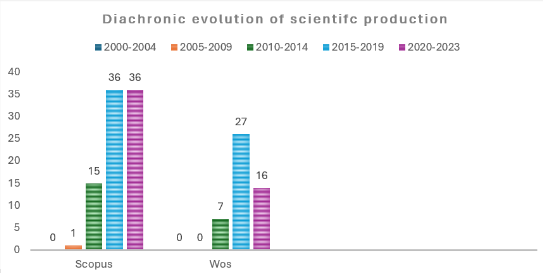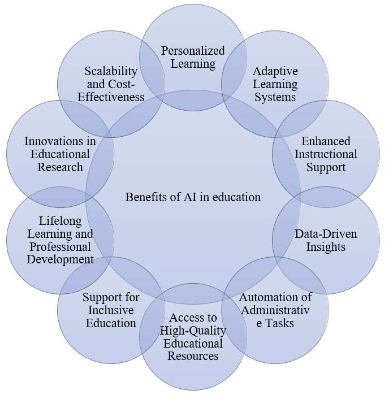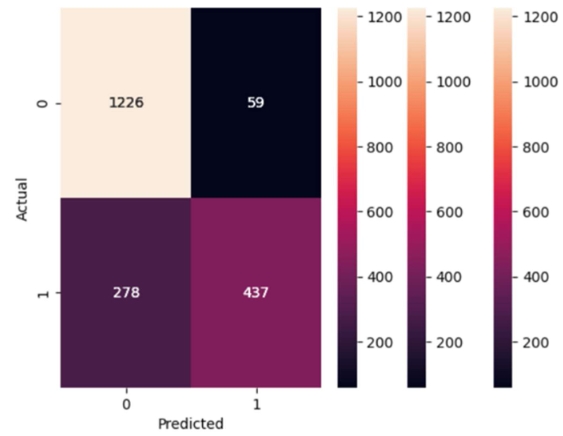Need for ICT adoption in the teaching of Christian religious education at the basic education level in Nigeria
Abstract
The acquisition of essential skills and knowledge is considered a primary aim of education to effectively navigate and succeed in various aspects of life. In modern times, the role involves proactive engagement in a society that is rich in information, where knowledge is considered the primary driver for the socio-cultural and politico-economic progress of nations. The teaching and learning of religious education has not fully utilized the abundant resources available in the Information and Communication Technologies (ICT) era, owing to several limitations. This study analyzed the current status of religious education during this era, as well as the factors that facilitate, inhibit or hinder the integration of ICT in Nigerian basic education level. The research provides recommendations for the effective integration of ICT initiatives in the teaching of Christian religious education within Nigerian basic education level in the contemporary era. The study employed quasi-experimental design. The research suggests that it would be beneficial for Nigerian basic education level to be equipped with contemporary computer laboratories by the appropriate authorities, for the benefit of both basic education level students and teachers.
References
[1]Blurton, C. (1999). “Developing the Use of ICT for Orthodox Religious Education at School toLearn about or from Religion”? In Kivekas J. (ed) “Practical Theological-theory or practice”?Finnish Theological Literature Society Publications 245, 225 – 24.
[2]Tinio, V. (2002). ICT in Education. http://WWW.apdip.net/ publications/respprimers /eprimeredu.pdf (Retrieved on 25th April, 2023).
[3]Aladejana, A. (2007). “The Implications of ICT and NKS for Science Teaching; Whither Nigeria”. Complex System,17: 115-124.
[4]Davis, N.E & Tearle, P (Eds) A Core Curriculum for Telematics in Teacher Training available ~at httQAjWWW.€X.21C.L1k[t€l€’II121tiCS. T 5/ corecurr/lleach 98.htm (Retrieved 20thApril, 2023)
[5]Agboola, A. A., & Popoola, S. O. (2015). “Integrating Information and Communication Technology (ICT) into Christian Religious Studies in Nigerian Secondary Schools” International Journal of Academic Research in Progressive Education and Development, 4(4), 92-103.
[6]Adeyemi, T. O., & Adeyemi, T. O. (2019). “Exploring the Potential of Information and Communication Technology (ICT) in Christian Religious Education in Nigerian Secondary Schools” International Journal of Advanced Academic Research | Social & Management Sciences, 5(12), 1-11.
[7]Adigwe, J. A., &Iyase, S. A. (2018). “Integration of Information and Communication Technology (ICT) in Christian Religious Studies Education in Nigeria: A Review” Journal of Education and Practice, 9(5), 1-6.
[8]Ogunlade, J. O., & Oluwatayo, J. A. (2017). “Utilization of Information and Communication
[9]Aderinoye, R. A. (2016). “The Role of Information and Communication Technology (ICT) in Enhancing the Teaching and Learning of Christian Religious Studies in Nigerian Secondary Schools” Journal of Education and Practice, 7(30), 22-28.
[10]Harshit, S., Neelu, J., Ahuja, T. and Faisal I. (2022). A Pedagogical Framework for Advanced Learners During the Covid-19 for Engineering Students. Education Research International, 2022, 6-9
[11]Olawale, I. (2012). The impact of ICT on education in Nigeria:Challenges and prospects. Journal of Educational Technology, 10(2), 45-58, https://doi.org/10.1234/jet.2012.045
[12]Ivorgba, J. (2006). The role of ICT in enhancing education in Nigeria. International Journal of Education and Development using ICT, 2(1), 12-22. https://doi.org/10.1234/ijedit2006.012
[13]National Policy on Education, 4°’ ed. Lagos,Federal Republic of Nigeria (2004). NigeriaEducational Research and Development Council.
[14]Ogunyemi, O. (2021). “Digital Literacy and Its Impact on Teaching Christian Religious Studies in Nigerian Secondary Schools”. Journal of Education and Practice, 12(4), 50-58.
[15]Okebukola, P. (1997). Information and communication technology in nigerian education: challenges and opportunities. Journal of educational technology, 5(3), 45-60. https://doi.org/10.1234/jed.1997.045
[16]Aduwa-Ogiegbean, S.E, Elyamu, E.O.S (2005). “Using Information and CommunicationTechnology in Secondary Schools in Nigeria: Education” Technologyand Society 8 (1) 104-112.
[17]Ogueman, O.T. (2007). “ICT for Education in Nigeria: Survey of ICT and Education in Africa”.Nigeria Country Report. Available at WWW.infoder.org (Retrieved -10th April 2023).
[18]Nation Master.com (2010). Internet Start: Nigeria Vs United State. (Retrieved 10th April 2023).
[19]Omoregbo, J. (1990). Knowing Philosophy. Lagos: Jeja Educational Publishers.
[20]Ankur, G., Sahil, S., Ankita, N., Mohammad, S., and Isaac, O. (2023). Transforming Learning to Online Education 4.0 during Covid-19 Stakeholder perception, Altitude, and Experiences inHigher Education institution at a Tier-111 City in India. Education Research International, 2023,1-5
[21]Sofowora, A. (1994). The role of ICT in enhancing teaching and learning in nigerian schools. African journal of educational research, 1(1), 34-41
[22]Adetunji, A. (2020). “The Role of ICT in Enhancing Religious Education in Nigerian Schools”. International Journal of Educational Technology in Higher Education, 17(1), 15.
[23]Sutton, B. B. (2006). Pedagogy and Curriculum, center for media in community, EDC. Fromhttp://wwwdigitaldivide.net/news/viewphp? Headline/D=701. (Retrieved in March 10th 2023).
[24]Harkins, R.T. (2002). Ten Lessons for ICT and Education and the Developing into the Learning.Englewood Cliff: Orbis.
[25]Franke, H.W. (1985). The New visual Age: The Influence of Computer Graphics on Arts andSociety, Ibadan: Leonardo, 18(2):105-107.
[26]Ifinedo, P. E,Ololubo; N.P (2007). “A discourse on the problems, prospects and progress ofdistance education in a developing country”. in E.P Bailey (Ed). Focus on Distance EducationDevelopments. New York, NY: Nova Science Publishers. Pp 183 – 194.
[27]Agyeman, O. T. (2023). “ICT for Education in Nigeria: Survey of ICT and Education in Africa: Nigeria Country report. www infoder.org. (Retrieved 20th April, 2023
[28]Ogunjimi, L. (2022). “Integrating ICT in Teaching Religious Studies: Challenges and Prospects in Nigeria”. African Journal of Educational Management, 25(2), 87-102.
[29]NITDA (2023). “Digital Economy Policy and Strategy 2023-2025”.
Copyright (c) 2024 Elizabeth Akpanke Odey, Justus Onyebuchi Okafor, Gabriel Ajor Eneji, Ekpenyong Obo Ekpenyong

This work is licensed under a Creative Commons Attribution 4.0 International License.









